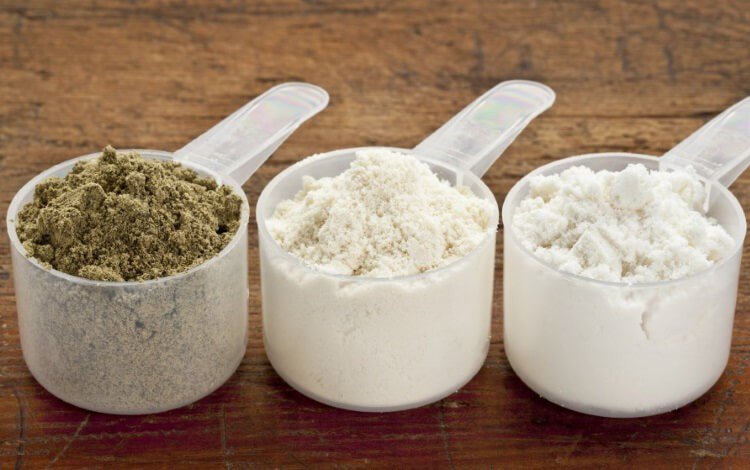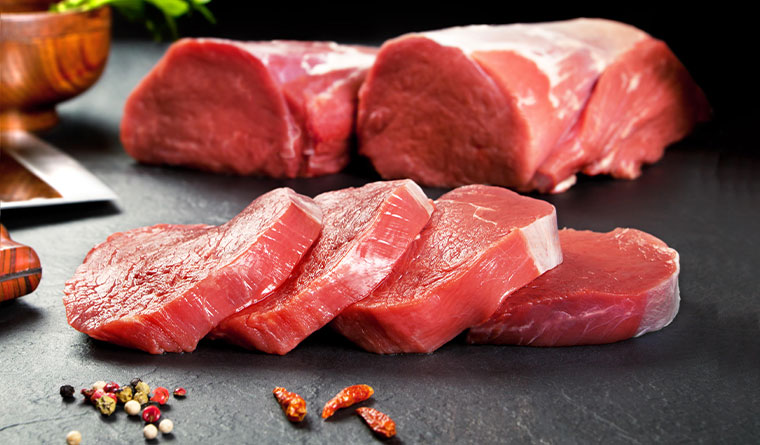Contrary to popular belief, High Protein make you Gain Weight are not the key to weight loss! Find out why in this comprehensive article. A common theory about protein consumption is that it can help prevent and fight obesity by managing body mass effectively. Protein breaks down more slowly than carbohydrates, so you’ll feel fuller for longer and prevent you from feeling hungry between meals, so you’ll eat less. However, some disagree about whether protein is safe and effective for long-term health.
A recent study found that a diet high in protein can lead to weight gain. People who include more than 20% protein in their diet, especially animal protein, are more likely to be overweight than people who include 10% protein in their diet. However, protein is an important nutrient that helps maintain body weight, so knowing how much protein to eat can be confusing.
You can start gaining weight if you eat more protein than your body needs for growth and repair. The nitrogenous portion of the second protein is removed and enters the glycogen synthesis process. Here, the High Protein make you Gain Weight body cannot distinguish between the glycogen it produces and carbohydrates, so it starts to store more fat.

Weight Gain and Protein : The Connection
Simply put, eating anything can be harmful – protein consumption is no different. Eating more protein than the body needs for a long time can lead to consequences such as weight gain. In addition, the protein intake system plays a role in weight management.
Your daily protein needs will vary depending on your lifestyle, goals, body type, pregnancy and illness or condition. For example, an active person such as an athlete or athlete should eat more than two grams of protein per kilogram of their body weight.
However, a healthy person with normal physical activity should consume about 0.8 g of protein per kilogram of body weight. Anything more than that can lead to unhealthy weight gain.

Scientifically speaking, the body can convert and store any food into stored fat. Therefore, if you eat too much protein, depending on how easily you can get energy again, your body can turn it into sugar and store it as fat.
When you eat protein, you can eat protein-rich foods that also have calories. One of the most overlooked facts about protein is that protein-rich foods and supplements can contain calories.
Therefore, excessive drinking and lack of appetite can cause negative effects. It’s no secret that eating more calories per day than you burn leads to weight gain. However, a health trainer or nutritionist at Fashionista Era can help you better understand and plan protein.
Simple steps like reducing other foods while increasing protein can help. However, excessive protein consumption comes with many other risks. For example, it can damage the kidneys or damage the health of the cardiovascular system.
Fashionista Notice
Protein plays an important role in maintaining overall health. But drinking too much of it leads to long-term gain. This is especially true if you exceed your recommended calorie intake. Therefore, you should be careful with your total calories if your goal is to lose weight High Protein make you Gain Weight. However, if gaining weight is your goal, the most important thing is to increase the total number of calories while keeping 20-30% of your calories from protein, as well as carbohydrates and fat.
Avoid these common mistakes to prevent unhealthy protein weight gain
The only way to gain unhealthy weight from protein consumption is to eat too much of it or eat it in the wrong way.
Some effective ways to prevent unwanted weight gain include:
- Be careful not to eat more calories (than you can burn) on high protein foods.
- Be active by doing physical activities like running, working out in the gym, etc.
- Consult a nutritionist to understand your body’s protein needs.
- Be careful which foods you choose to meet your daily protein needs.
Sources of protein can contribute to weight gain
Packaged yogurt
Store-bought yogurts often claim to be high in protein, but should not be consumed daily as they may contain added sugar and preservatives. Plus, they’re not good for you because they have flavor. Homemade yogurt is always the best choice.
Processed cheese

Cheese is a good source of protein, calcium and other important nutrients. But it is very important that you know about the cheese you eat. Avoid cottage cheese if you want to prevent weight gain.
Protein powder

This powder alone probably will not promote weight gain, but how you use it will. Lack of proper exercise and excessive use of protein powder can lead to weight gain; you will start gaining weight if you increase your protein intake without changing other nutrients in your diet to balance the increased calories. Protein powder can be a great dietary supplement for those trying to gain weight, but if you’re trying to lose weight, you need to use it wisely.
People who want to gain weight struggle with anorexia. Protein shakes are an easy way to increase your protein intake without eating too much. Protein shakes vary by brand and protein content. So consult a nutritionist to find out what’s best for you. The experts at Fashionista Era will guide you to the best options for your health needs.
Meat

Meat is high in protein, cholesterol, saturated fat and calories. You are more likely to overeat because it has no fiber. However, lean chicken helps in building muscles and prevents unwanted weight gain.
Fashionista Era Expert Opinion
Protein is a complex food that should be consumed with care and love.
According to its structure, most of the human body, from hair, nails and skin to many hormones to the cells of the body and all the muscles that help us move, is protein.
With the above knowledge, it is important to choose the right proteins and prepare them in a good way (such as grilling, roasting, frying or steaming) so that we know how much and how often to eat to get results best health.
Bottom Line
A healthy diet is the best way to stay fit and avoid High Protein make you Gain Weight. Eating too much protein alone will not cause weight gain. However, other aspects of your life and other foods that contain protein can lead to weight gain. For example, you can gain weight by consuming protein powder without modifying other components to reduce calories. You can also gain weight if you get most of your protein from high-fat foods like cheese, sweet yogurt, and meat. That’s why it’s important to work with a registered dietitian or nutritionist to find out what’s best for your health.

